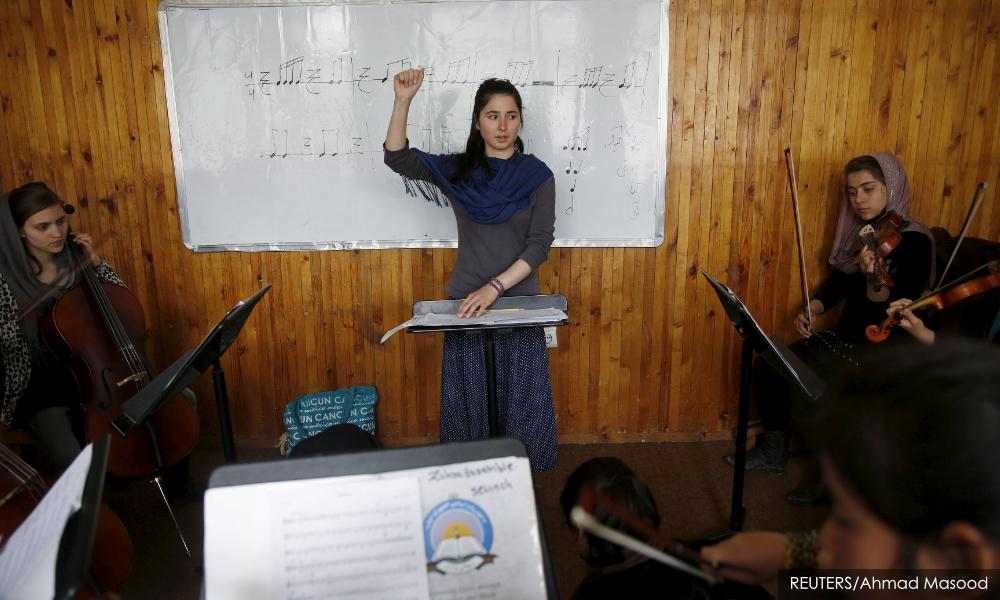LETTER | On Dec 22, the Taliban banned women from entering universities in Afghanistan, both public and private, with immediate effect.
This decision, which is inexplicable from a logical point of view and indefensible from a religious point of view, has provoked global condemnation, and half of the society, especially the youth of the country.
Along with the Taliban's previous decision to ban girls from secondary schools, the university ban has completely denied women access to secondary and higher education.
By prohibiting secondary and higher education for women, the Taliban have set a precedent that the world never witnessed before that has shocked the world, hurt the people of Afghanistan and created a rift among the Taliban as not all of them are happy with the ban - and has been described by concerned world leaders, both Muslims and non-Muslims, as “a disaster”, “cruel”, “inhuman” and “un-Islamic”.
The Taliban’s ban on education for women pulls the country back, prevents progress and damages the country's cultural foundation.
Because of its destructive effects, unpopularity and widespread condemnation, the ban harms the Afghan nation and the Taliban as well, as it prevents their regime from achieving national and international legitimacy.

The United Nations and most of its members, including the US, the United Kingdom, Germany, France, Turkey and Saudi Arabia have condemned the ban.
Also, the foreign ministers of the G7 declared in a joint statement on Dec 22 that the Taliban's treatment of women and girls in Afghanistan is at the level of a "crime against humanity.”
The Taliban are systematically ‘erasing women from public life’ and pushing Afghanistan "towards the Stone Age." The G7 foreign ministers have demanded the ban be reversed.
The Higher Education Minister in the Taliban government, Nada Mohammad Nadeem, tried to justify their ban vaguely and unconvincingly by claiming that the female students were ignoring the hijab, which was not true, as all of them have been wearing the hijab prior to and during the Taliban regime.
Furthermore, they said that science courses such as "engineering, agriculture and some other courses" were not suitable for women, because these courses "are not compatible with the dignity and honour of female students as well as Afghan culture".
The reasoning of this minister defies logic and goes against the very principle of Islam. Egypt’s Grand Imam of Al-Azhar, Ahmed El-Tayeb condemned the Taliban's ban on women's university studies on Thursday stating that it contradicts the Shariah.
Knowingly or unknowingly, the Taliban regime axes its own roots with its hasty and disastrous decisions and brings infamy and hatred for itself, and as a result, it is condemned nationally and internationally.

Banning girls from education has no religious or rational basis, except depriving half of the population of their natural and inalienable rights. This careless decision threatens the very survival of the Taliban regime.
A civil uprising against the Taliban’s decision to ban female education is already taking shape. University lecturers, both men and women, are resigning one after another, already "sixty lecturers have resigned, many have threatened not to attend their classes until the universities are reopened to women."
Male and female students demonstrate in the streets and chant "freedom, equality, security and education" and "we were expelled from the university for the crime of reading and watching".
Women’s demonstrations, however, were violently crushed by the Taliban, and demonstrators were “beaten, arrested, and sent to prison.” The educated youth are leaving the country and some students, male and female, committed suicide due to despair and a dark future.
If the Taliban do not reverse their decision, the fear is that more students may commit suicide.
The Taliban decrees, which deprive girls of secondary and higher education, are extremely harmful and some opportunists may use them to promote Islamophobia.
However, let it be clear that this decision has nothing to do with Islam and Muslims, except adversely affecting the interest of Muslims in Afghanistan. No one should blame Islam or Muslims for the personal decision of the Taliban.
Islam promotes seeking knowledge
Islam promotes education. The first verse of the Qur'an began with the words "read" and "pen" (Qur'an: 96:1-5), which are the means of acquiring knowledge. The importance of acquiring knowledge is apparent from the Quranic verse which reads: "Are the people of knowledge equal to those who do not have knowledge?" (Quran: 39:9). Islam considers “seeking knowledge [as] a duty of every Muslim” and it has to be sought “from the cradle to the grave” or “even if it is far as China.”
The Taliban ban on the education of female students, who make up almost 50 percent of the student community, is “un-Islamic”,
Islam intends to lead its followers from darkness to light but banning Muslim girls in Afghanistan from secondary and higher education may mean leading them from light to dark and “destroying their dreams.”
Yes, the world has disapproved of the banning but that is not enough. Practical steps should be taken to pursue the Taliban to forego their harsh and gender-discriminatory decisions.
The views expressed here are those of the author/contributor and do not necessarily represent the views of Malaysiakini.

